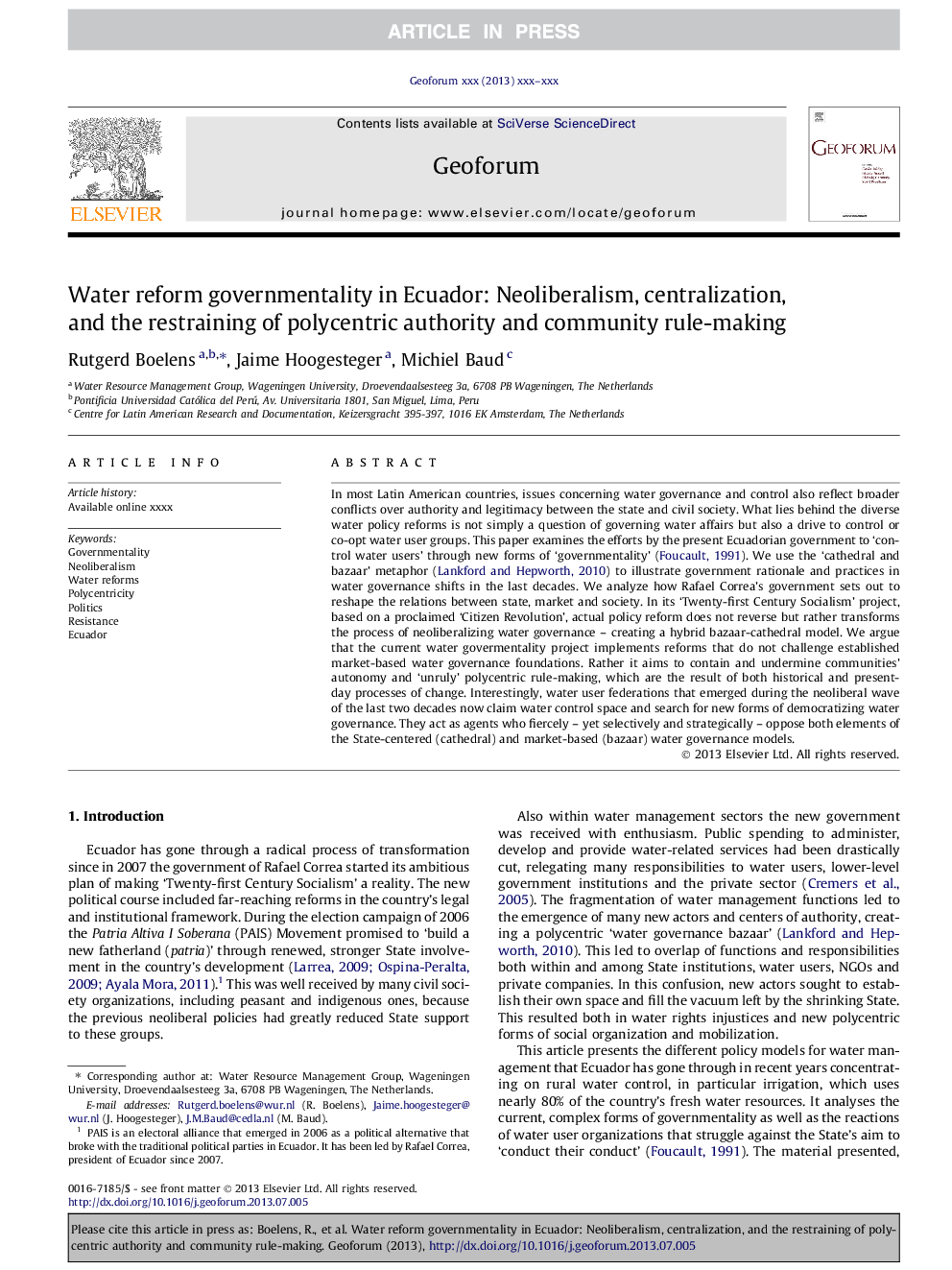| کد مقاله | کد نشریه | سال انتشار | مقاله انگلیسی | نسخه تمام متن |
|---|---|---|---|---|
| 5073691 | 1477125 | 2015 | 11 صفحه PDF | دانلود رایگان |
عنوان انگلیسی مقاله ISI
Water reform governmentality in Ecuador: Neoliberalism, centralization, and the restraining of polycentric authority and community rule-making
ترجمه فارسی عنوان
حکومتداری اصلاحات آب در اکوادور: نولیبرالیسم، متمرکز کردن و محدود کردن اقتدار چندگانه و حکومتداری اجتماعی
دانلود مقاله + سفارش ترجمه
دانلود مقاله ISI انگلیسی
رایگان برای ایرانیان
کلمات کلیدی
حکومتداری، نئولیبرالیسم، اصلاحات آب، چندرسانه ای، سیاست، مقاومت، اکوادور،
موضوعات مرتبط
علوم انسانی و اجتماعی
اقتصاد، اقتصادسنجی و امور مالی
اقتصاد و اقتصادسنجی
چکیده انگلیسی
In most Latin American countries, issues concerning water governance and control also reflect broader conflicts over authority and legitimacy between the state and civil society. What lies behind the diverse water policy reforms is not simply a question of governing water affairs but also a drive to control or co-opt water user groups. This paper examines the efforts by the present Ecuadorian government to 'control water users' through new forms of 'governmentality' (Foucault, 1991). We use the 'cathedral and bazaar' metaphor (Lankford and Hepworth, 2010) to illustrate government rationale and practices in water governance shifts in the last decades. We analyze how Rafael Correa's government sets out to reshape the relations between state, market and society. In its 'Twenty-first Century Socialism' project, based on a proclaimed 'Citizen Revolution', actual policy reform does not reverse but rather transforms the process of neoliberalizing water governance - creating a hybrid bazaar-cathedral model. We argue that the current water govermentality project implements reforms that do not challenge established market-based water governance foundations. Rather it aims to contain and undermine communities' autonomy and 'unruly' polycentric rule-making, which are the result of both historical and present-day processes of change. Interestingly, water user federations that emerged during the neoliberal wave of the last two decades now claim water control space and search for new forms of democratizing water governance. They act as agents who fiercely - yet selectively and strategically - oppose both elements of the State-centered (cathedral) and market-based (bazaar) water governance models.
ناشر
Database: Elsevier - ScienceDirect (ساینس دایرکت)
Journal: Geoforum - Volume 64, August 2015, Pages 281-291
Journal: Geoforum - Volume 64, August 2015, Pages 281-291
نویسندگان
Rutgerd Boelens, Jaime Hoogesteger, Michiel Baud,
